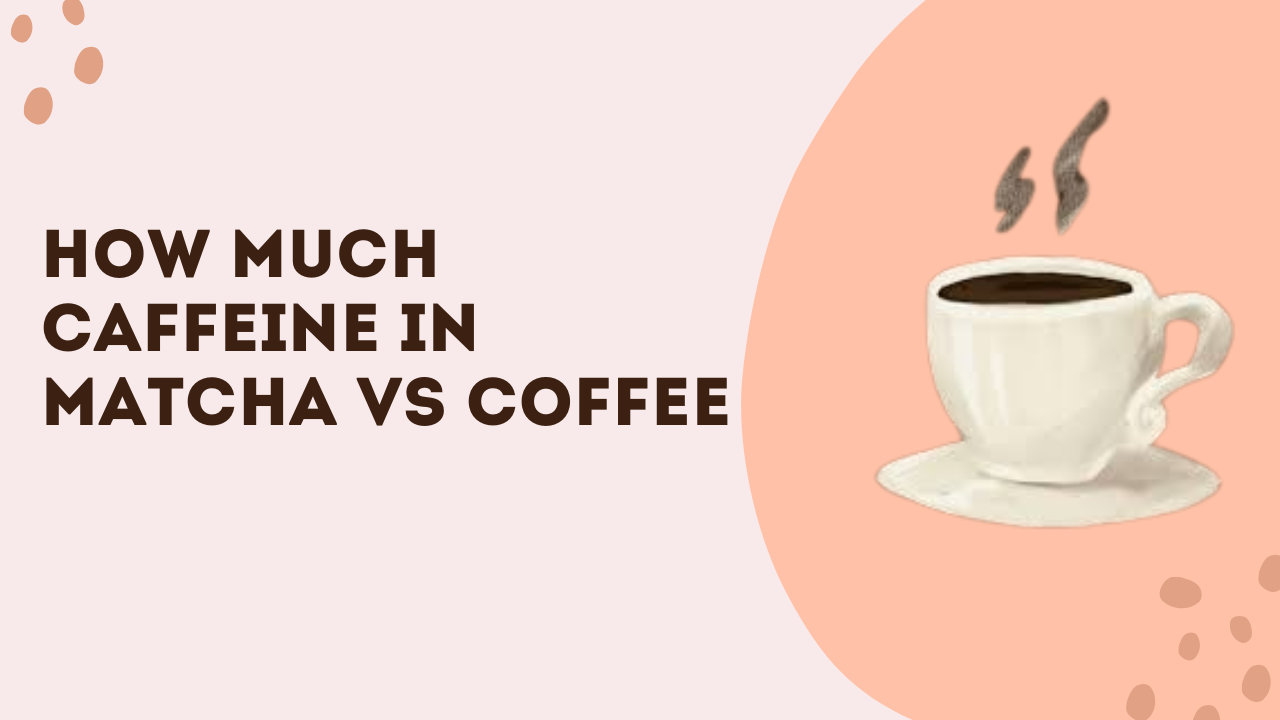If you’ve ever asked yourself how much caffeine in matcha vs coffee, welcome to the club. You’re not alone. With matcha taking over every cafe menu and social feed lately, a lot of us are wondering—does that little green scoop of powder actually pack a punch like your regular cup o’ joe? Or is it more like a calm little energy whisper compared to coffee’s full-blown shout? It’s kind of confusing because both claim to give you energy, but in very different ways. So today, we’re diving deep into caffeine content, energy crashes, health perks (or not), and everything in between. Grab your drink of choice (bonus points if it’s one of these two), and let’s break it all down. Spoiler: the answer might not be what you think.
The Caffeine Basics: Matcha vs Coffee
Okay, so first things first. Let’s talk numbers. Caffeine is measured in milligrams (mg), and how much you’re getting depends on how much matcha or coffee you’re actually drinking. And not all cups are created equal!
- Matcha: One teaspoon of matcha powder (about 2 grams), which is what you’d normally use for one cup, contains around 60-70 mg of caffeine.
- Coffee: An 8 oz (small-ish) cup of brewed coffee typically has about 95-120 mg of caffeine, depending on how strong you make it.
So yeah, coffee technically has more caffeine per serving. But that’s not the full story, so don’t click away just yet!
Wait, Why Do People Say Matcha Gives “Calmer Energy”?
Great question. Matcha might have less caffeine than coffee, but it also comes with a sidekick: L-theanine. It’s an amino acid that has a chill-out effect on your brain. Seriously—it helps slow down the absorption of caffeine and kind of smooths out the energy curve. So instead of a huge spike and then a crash (hello, coffee jitters), matcha gives you a more stable, focused energy that can last longer. Think of it like a slow burn instead of a caffeine rollercoaster.
In contrast, coffee hits fast. You feel that boost within 15–30 minutes. But you might also feel anxious or jittery if you’re sensitive to caffeine—or if you, like me, occasionally forget that 3 cups before noon is probably not the best idea.
What Affects the Caffeine Content Anyway?
Okay, so here’s where it gets a little more “depends on the details” than just matcha vs coffee.
For Matcha:
- The grade matters. Ceremonial grade matcha (fancy stuff) often has a bit more caffeine than culinary grade.
- The amount you use per cup totally changes the caffeine content. Some people use 1/2 tsp, some go wild with a tablespoon.
- How it’s prepared counts too—iced, whisked, blended with milk—everything can influence how much caffeine you’re really getting.
For Coffee:
- The brew method makes a HUGE difference. Espresso? Way more concentrated. French press? Strong. Drip coffee? Kinda middle ground.
- Roast level (yep, surprise) doesn’t mean more caffeine. In fact, lighter roasts usually have more caffeine than dark roasts, because the beans are denser.
- Serving size is a sneaky one. A “cup” might be 8 oz, but who actually drinks only 8 oz anymore? Let’s be real—most mugs are more like 12-16 oz these days.
So… Which One’s “Healthier”?
Oof. That’s a tricky one. Both have their benefits, honestly. Here’s a quick side-by-side.
| Matcha | Coffee | |
|---|---|---|
| Caffeine | ~60-70 mg per tsp | ~95-120 mg per 8 oz |
| Energy | Calm, focused | Quick, intense |
| Crash Factor | Low | Medium to high |
| Other Perks | High in antioxidants (EGCG!), L-theanine, may boost metabolism | Antioxidants, may support brain health and liver function |
| Acidity | Low | Higher—can cause stomach issues for some |
So yeah, if you’re looking for smoother energy without the crash, matcha might win the round. But if you need that instant wake-up call (hi, 6 AM meetings), coffee’s your buddy.
A Real-Life Comparison: My “Productivity Test”
Just for fun, I did a little experiment last week. Three days in a row, I started my workday with either matcha or coffee, and tracked how I felt.
- Day 1: Matcha – Took longer to feel awake, but once I was in the zone, I stayed focused for hours. No crash at all. Kinda felt like a gentle, nerdy superpower.
- Day 2: Coffee – Immediate energy! I cranked out emails like a machine for two hours. Then… boom. 11 AM crash. Needed a snack and a nap.
- Day 3: Matcha again – Same focused vibe. Started liking it more than I thought I would.
So yeah, for me, matcha wins on consistency. But I still love the ritual of a good cup of coffee—especially iced, with oat milk. Yum.
Final Thoughts: What’s Best for YOU?
If you’re still wondering how much caffeine in matcha vs coffee, here’s your answer in plain English:
- Coffee has more caffeine, but comes with potential jitters and energy crashes.
- Matcha has less caffeine, but it delivers smoother, longer-lasting energy thanks to L-theanine.
It really comes down to your goals and how your body reacts. Want a calm, focused morning? Try matcha. Need to be alert right now? Go for coffee.
And hey—why not both? A matcha latte in the morning and a small coffee post-lunch sounds like balance to me.
